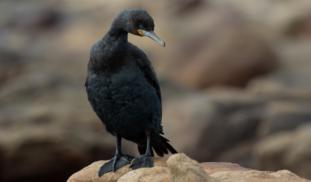485
0
0
Like?
Please wait...
About This Project
Cape Cormorants and Cape Gannets are Endangered seabirds that primarily feed on sardine and anchovy . Although their breeding movements are well known, their non-breeding movements are yet to be discovered. Knowing where they go throughout the year will identify areas of common use that need protection. Seabirds are indicators of marine ecosystem health and tracking these species will provide insights into the state of South Africa's marine ecosystem.


